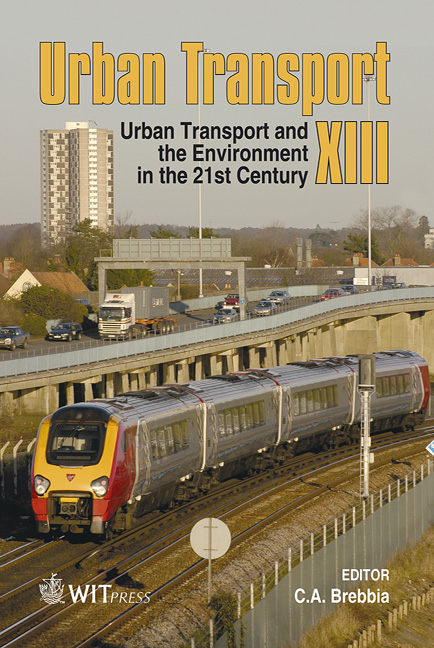Examination Of The Bus Lane Enforcement System In Thessaloniki
Price
Free (open access)
Transaction
Volume
96
Pages
10
Published
2007
Size
1,339 kb
Paper DOI
10.2495/UT070031
Copyright
WIT Press
Author(s)
S. Basbas
Abstract
One way to deal with the traffic and associated environmental problems in urban areas is the promotion of Public Transport. This can be achieved, among other things, through the implementation of bus priority measures. Bus lanes comprise the most widespread measure worldwide and their success mainly depends on the efficiency of the enforcement. The international experience shows that enforcement is mainly based nowadays on stationary and bus mounted cameras. Within the framework of this paper the existing situation, as far as the bus lanes violators in the city of Thessaloniki are concerned, is presented. Results are based on a survey that was carried out in December 2005 and these results were compared to the ones obtained from previous surveys in the same area. The vast majority of violators concern the drivers of two-wheel cycles followed by taxi drivers. In some cases drivers of the two-wheel cycles can legally enter the bus lanes (something which is foreseen in the Greek Highway Code under certain circumstances), then taxi drivers consist of more than half of the violators of the bus lane network. Keywords: bus lane, enforcement, bus priority, stationary cameras. 1 Introduction Bus priority measures play a very important role in the efforts of local authorities all over the world in order to promote the use of Public Transport and at the same time to reduce traffic congestion as well as the associated environmental impacts. The reliability of the Public Transport system is improved as a result of the bus priority measures and this fact encourage people to use buses instead of
Keywords
bus lane, enforcement, bus priority, stationary cameras.





